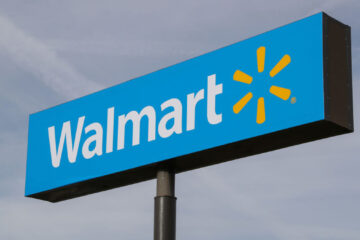Consumer prices soared 8.6% in the 12 months through May, a 40-year high.
As you’ve undoubtedly noticed in your shopping, inflation is running rampant. Consumer prices soared 8.6% in the 12 months through May, a 40-year high.
As an investor, you’re probably interested in companies that can withstand the inflation storm. Or as Bank of America strategists put it in a commentary, “rising inflation puts pressure on margins, and companies with the ability to pass through cost inflation via pricing may continue to be sought after by investors.”
The strategists put together a list of S&P 500 companies that fit the bill. They excluded companies that received an underperform rating from BofA analysts.
“We screened for companies that have positive sales and EBIT [earnings before interest and taxes] margin growth from the second quarter of 2021 to the first quarter of 2022 (estimated).”
They also chose companies “with positive historical sensitivity to CPI [the consumer price index], below-median labor intensity (employee/sales), and higher market share in 2021 versus 2019…”
The 14-company roster includes these 10 in alphabetical order:
· Apple (AAPL) – Get Apple Inc. Report, the consumer electronics titan;
· Archer-Daniels-Midland (ADM) – Get Archer-Daniels-Midland Company Report, the food processing company;
· Celanese (CE) – Get Celanese Corporation Report, a chemicals company;
· ConocoPhillips (COP) – Get ConocoPhillips Report, an oil producer;
· Costco Wholesale (COST) – Get Costco Wholesale Corporation Report, the big-box retailer;
· Freeport-McMoRan (FCX) – Get Freeport-McMoRan Inc. Report, the mining company;
· Microsoft (MSFT) – Get Microsoft Corporation Report, the software giant;
· Nucor (NUE) – Get Nucor Corporation Report, a steelmaker;
· Nvidia (NVDA) – Get NVIDIA Corporation Report, the semiconductor titan;
· Pioneer Natural Resources (PXD) – Get Pioneer Natural Resources Company Report, a fracking company.
Morningstar’s Take on Apple
Morningstar analyst Abhinav Davuluri assigns the company a narrow moat and puts fair value for the stock at $130. It recently traded at $138.
“Apple’s competitive advantage stems from its ability to package hardware, software, services, and third-party applications into sleek, intuitive, and appealing devices,” he wrote in a commentary.
“This expertise enables the firm to capture a premium on its hardware, unlike most of its peers.”
But Davuluri offered a caveat. “Despite Apple’s admirable reputation, loyal customer base, and unique products, the consumer hardware space can be unforgiving to firms unable to consistently satiate the customer’s appetite for more features,” he said.
“Given the short product cycles of Apple’s products and army of firms targeting its dominance, we do not believe Apple has a wide economic moat.”
Morningstar’s Take on Microsoft
Morningstar analyst Dan Romanoff gives the company a wide moat and puts fair value for the stock at $352. It recently traded at $258.
“Since taking over as CEO in 2014, Satya Nadella has reinvented Microsoft into a cloud leader,” Romanoff wrote in a commentary. “Microsoft has become one of two public cloud providers that can deliver a wide variety of … solutions at scale.”
Also, “Microsoft embraced the open source movement and has largely transitioned from a traditional perpetual license model to a subscription model,” he said.


